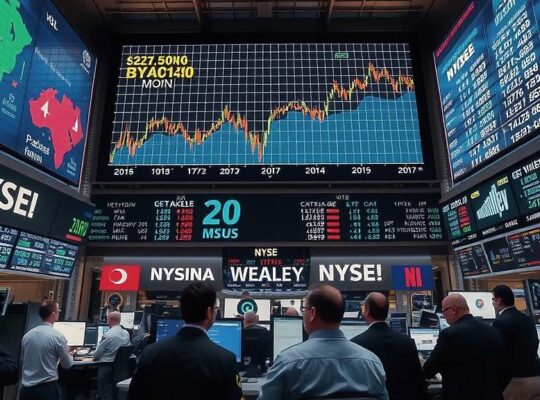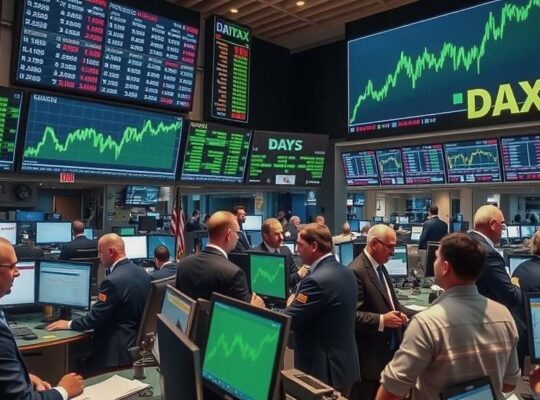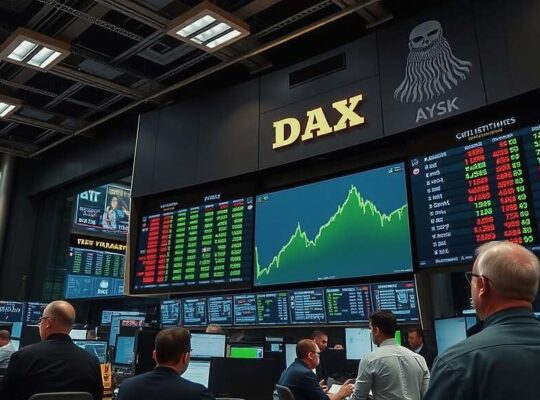European markets experienced a downturn at the start of the trading week, with the Dax index closing notably lower. The index finished the Xetra trading day at 23,970 points, reflecting a decrease of 1.0 percent compared to the previous day’s closing value.
Market analysts attributed the shift to a waning sense of optimism surrounding the evolving trade relationship between Europe and the United States. Initial expectations of agreement have given way to a degree of surprise, leading to adjustments in investor behavior.
While some sectors are showing resilience, notably the European semiconductor and pharmaceutical industries, the automotive sector faces a challenging outlook. Market participants are responding by reducing their holdings in companies like Volkswagen, Porsche, BMW and Mercedes-Benz.
Conversely, shares of companies such as Infineon and Merck are attracting increased buying interest. Defensive industries are also gaining traction as investors seek safer investment options. The forthcoming performance of the US markets will be crucial in gauging how American investors factor the trade dynamics between Europe and the US.
Looking ahead, the stance adopted by Chinese negotiators concerning their trade discussions with the US remains a key variable impacting broader European economic trends. The coming days will reveal the specific implications of this evolving geopolitical landscape.
The euro experienced a significant decline against the US dollar, trading at $1.1623 (-1.18 percent). Gold prices also weakened, with a fine ounce valued at $3,316 (-0.6 percent), equivalent to €91.73 per gram.
In contrast to the downward pressure on the euro and gold, the oil price saw a considerable rise. Brent crude, a key benchmark, reached $69.82 per barrel, an increase of 2.0 percent from the previous day’s close.












